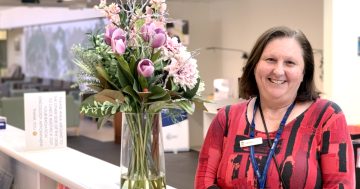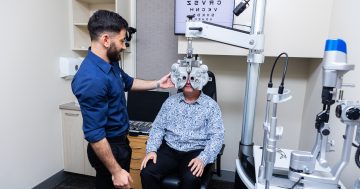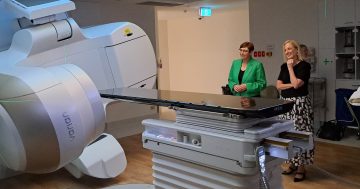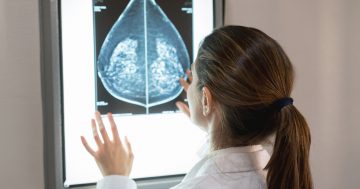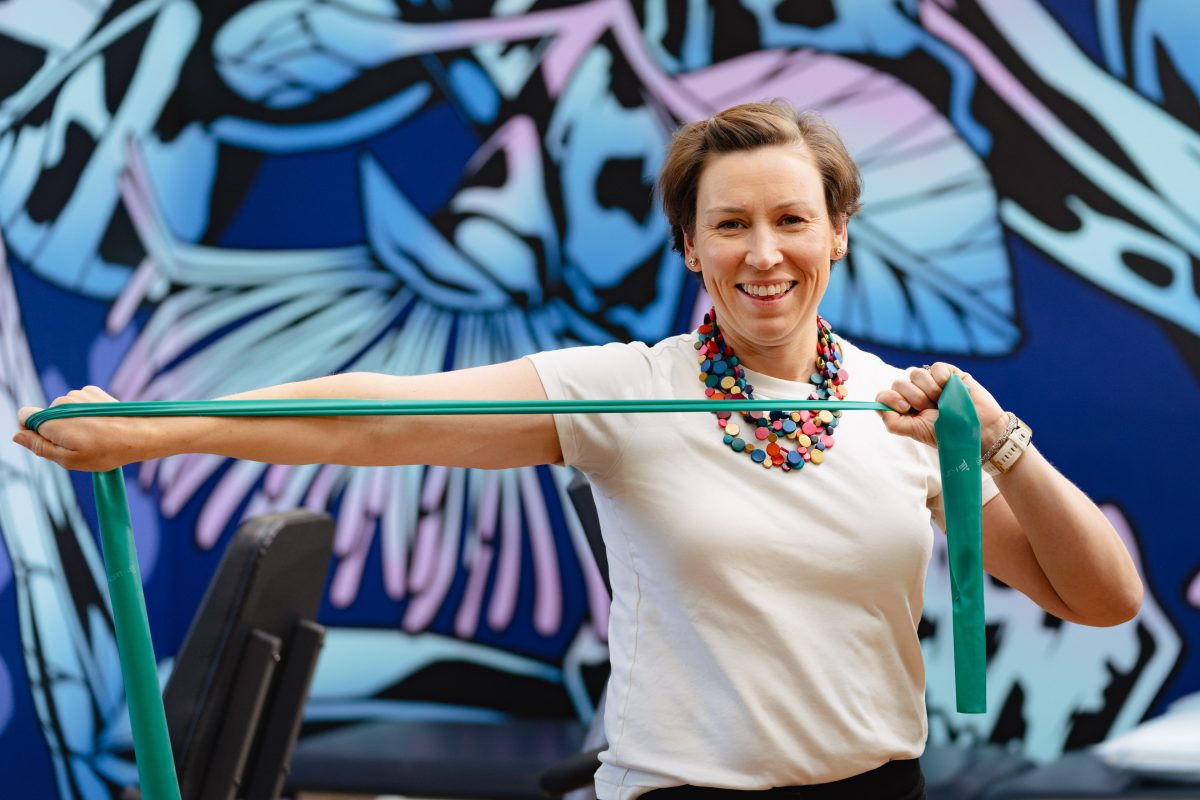
Icon Cancer Centre and UC Cancer Wellness Centre client Cassandra Bennett. Photos: Liv Cameron.
As an associate director at one of the big four with millions of dollars under her management every month, it was hard to imagine Cassandra (Cass) Bennett also had two small children and ran the odd half marathon.
But when she was diagnosed with brain cancer in July 2018, her world turned upside down.
“My kids at the time were only four and six years old and I had been given a life expectancy of five to 10 years,” she said.
“All of a sudden to find out I probably wouldn’t live to be 46 … yeah, it was a kick in the head.”
A week later Cass had surgery to remove about 20 per cent of her tumour. Over the following two years, she underwent a combination of chemotherapy and radiation therapy and took two different medications.
It had a lasting impact on her physiology, ostensibly ending her career. But with her tumour stabilised, it was time for the specialists to clear out and for Cass to pick up the pieces.
“You get a diagnosis on a Monday and by Friday you have a neurosurgeon, radiology specialists and an oncologist. They were all wonderful, but once their part is done, they can’t help with the aftermath,” she said.
“Like how do we manage our finances? How do I get time off work? Can I work? How do we manage the kids? How do we even talk to the kids about all of this? How do I do all those things they say you’re meant to do, to ensure I don’t lose too much brain function?
“On top of it all, well-meaning people often tell you to ‘stay positive’. The fact is a cancer diagnosis is a disaster – don’t give me platitudes. Give me something practical that I can manage that might mean real, tangible outcomes for me.”
Those practical actions came from the allied health specialists at the University of Canberra (UC) Cancer Wellness Centre.
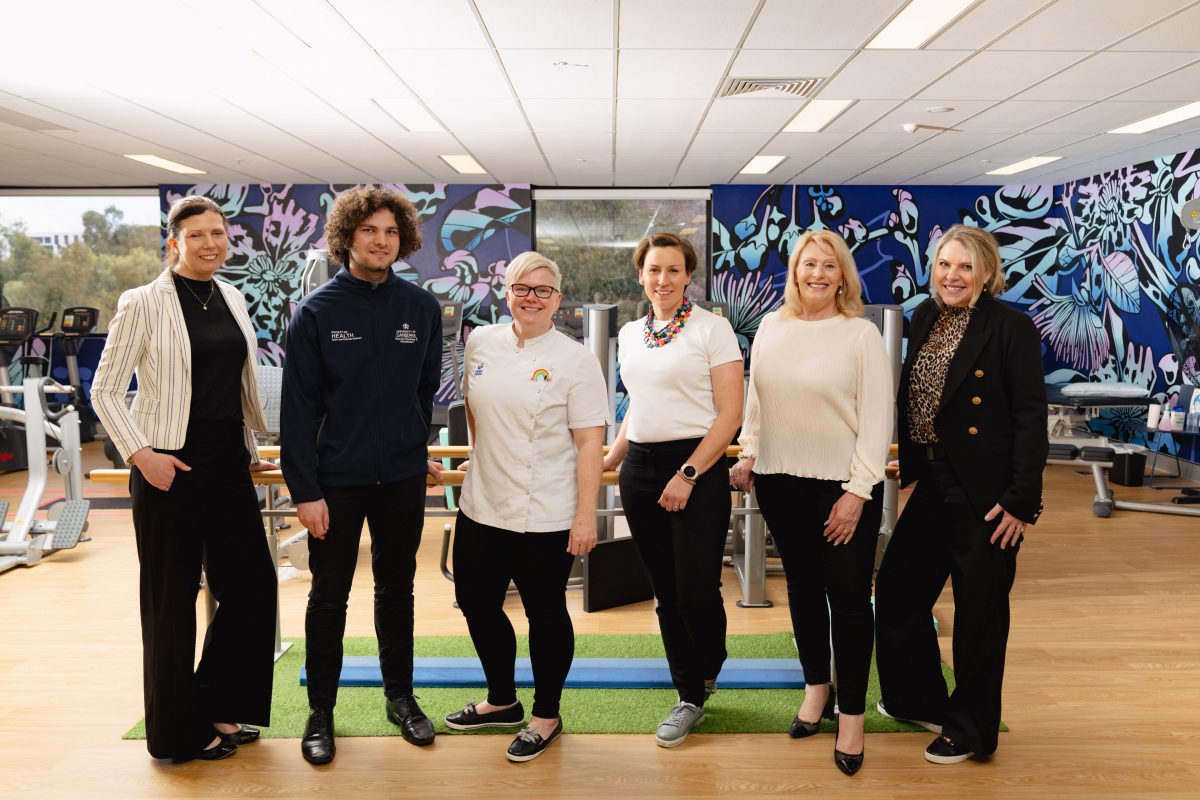
Exercise physiology clinical supervisor Melanie Moore, UC student Luca Napoli, Capital Chemist Charnwood owner and pharmacist Samantha Kourtis, Icon Cancer Centre client Cassandra Bennett, Capital Chemist community program manager Melita Flynn and associate director of development Amanda Fintan. Photo: Liv Cameron.
The multidisciplinary teaching clinic offers holistic services before, during and after cancer treatment, covering everything from nutrition to exercise and counselling. And it was conveniently housed in the same building as Icon Cancer Centre where Cass received treatment.
Exercise physiology clinical supervisor Melanie Moore said the centre operated on the evidence-based premise that a holistic approach achieved superior patient outcomes.
“We know exercise on its own is effective at reducing the side-effects associated with treatment. We also know when you couple that with good nutrition, a patient’s outcomes improve again. When we add mental health care such as psychology or counselling, it further optimises these outcomes.
“Rather than a patient using just one modality, we want all three of these pillars of health and supportive care in place.”
These services are one of three fundamental purposes for the centre.
As part of the university, it also provides students with work-integrated learning opportunities and plays an important research role, with analysis ranging from the impact of COVID as experienced by cancer patients to the clinical application of telehealth on cancer care.
“In my PhD I’m focusing on the haematological cancers (blood cancer such as myeloma, leukaemia, and lymphoma) and the best exercise protocols for that population,” Melanie said.
“The aim of our research is translating the outcomes into clinical practice to ensure clients get the best care.”
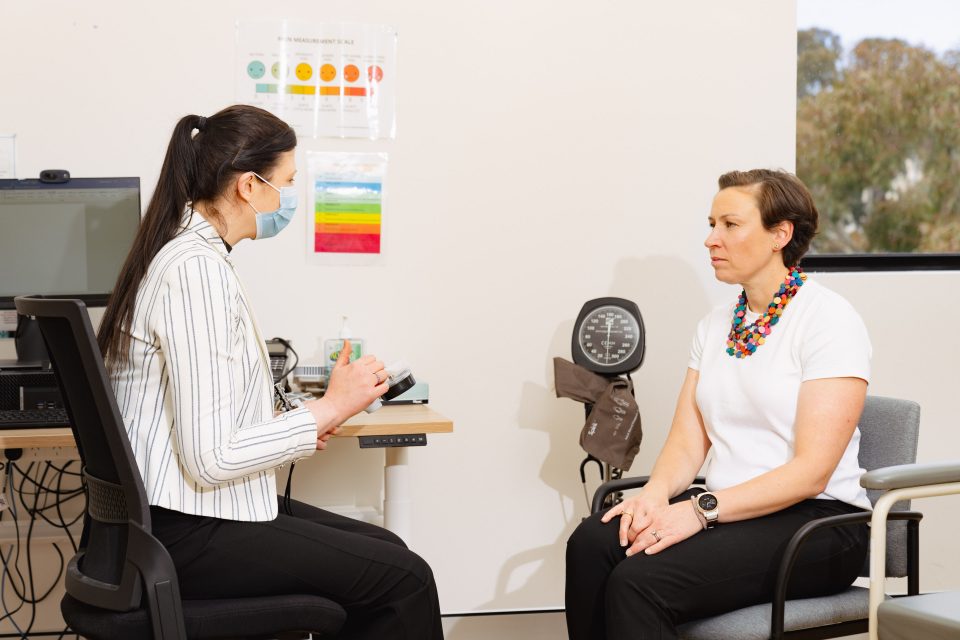


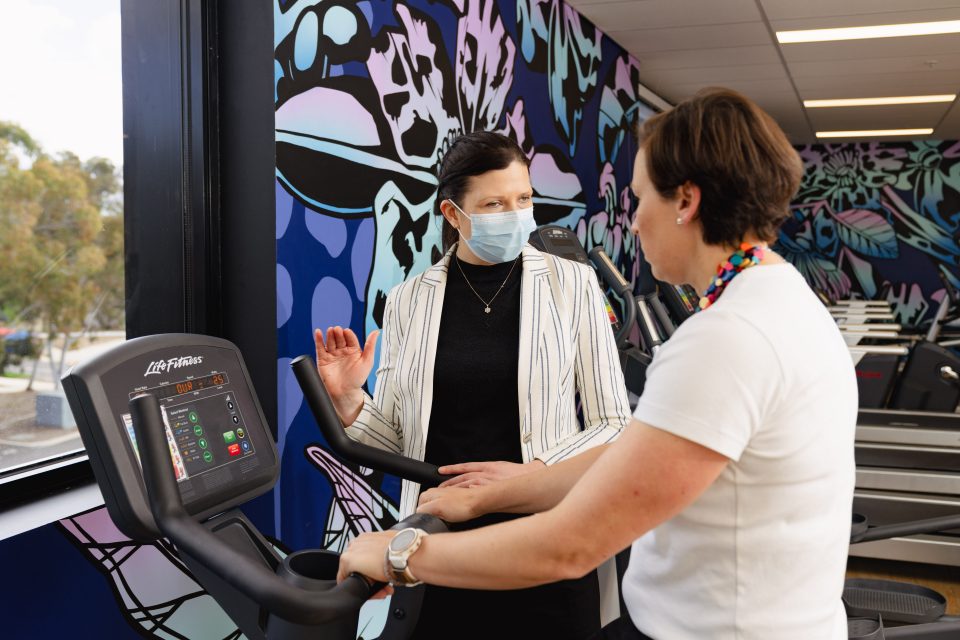

While Cass is at the beginning of her journey at the centre, she’s hopeful her treatment plan will help manage her fatigue and address deficiencies in balance and endurance.
In the meantime, she has used her lived experience to develop the Survivorship Diary, a free resource for brain cancer and brain tumour patients that also helps keep track of appointments and medications.
She said if there was one positive to come out of her diagnosis, it was more time for parenthood.
During December, the University of Canberra has committed to matching all funds raised for the UC Cancer Wellness Centre’s care and recovery work. Visit Cancer Recovery












